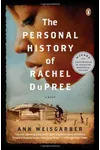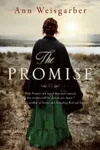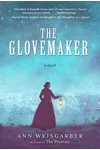Picture an American storyteller who unearths forgotten voices from the rugged heart of history—meet Ann Weisgarber! With her historical fiction novels, she spins tales of resilience, love, and moral dilemmas against the stark backdrops of America’s past. From the South Dakota Badlands to Galveston’s storm-ravaged shores, Weisgarber’s vivid prose and meticulous research make history sing, earning her accolades and a devoted readership.
Born and raised in Kettering, Ohio, Weisgarber didn’t start as a writer but as a social worker, listening to people’s stories. That knack for understanding human struggles now fuels her novels, which shine a light on overlooked perspectives—think African American homesteaders or Mormon outcasts. Her work isn’t just storytelling; it’s a bridge to the past, inviting readers to rethink history through empathy and grit.
The Making of Ann Weisgarber
Ann Weisgarber grew up in a Dayton suburb, where family trips to historic sites like Kitty Hawk sparked her love for the past. She earned a Bachelor of Arts in Social Work from Wright State University and a Master of Arts in Sociology from the University of Houston. Before writing, she worked in psychiatric and nursing home facilities and taught sociology at Wharton County Junior College in Texas. These roles honed her ability to capture human complexity, a skill that defines her fiction. Living in places like Cambridge, Massachusetts, and now Galveston, Texas, Weisgarber found inspiration in America’s diverse landscapes, often visiting national parks with her husband, Rob, for research and relaxation.
Ann Weisgarber’s Unforgettable Stories
Weisgarber’s novels are historical fiction at its finest, blending rigorous research with emotionally rich narratives. Her debut, The Personal History of Rachel DuPree (2010), follows an African American woman homesteading in the South Dakota Badlands in 1917. Inspired by a photograph of an unnamed woman, the novel tackles prejudice and perseverance, earning nominations for the Orange Prize and the Langum Prize for American Historical Fiction. Viola Davis’s production company is adapting it into a major motion picture.
Her second novel, The Promise (2014), dives into the 1900 Galveston hurricane, America’s deadliest natural disaster. With shades of Willa Cather, it weaves a heartbreaking tale of love and secrets through two women’s voices, earning a Walter Scott Prize shortlist spot. The Glovemaker (2019), set in Utah’s Mormon country in 1888, explores faith and moral choices as a woman shelters a fugitive. It won the 2020 WILLA Literary Award and was a Spur Award finalist. Weisgarber’s style—lean, luminous, and deeply human—brings history to life, focusing on slow communication to heighten tension and authenticity.
Why Ann Weisgarber Matters
Weisgarber’s impact lies in her ability to resurrect marginalized voices, from Black homesteaders to Mormon renegades, challenging readers to see history through fresh eyes. Her novels don’t just entertain; they educate, sparking curiosity about events like the Galveston hurricane or the Mountain Meadows Massacre. By grounding her stories in real places and historical truths, she bridges past and present, earning praise from authors like Ellen Feldman and Ron Rash. Her induction into the Texas Institute of Letters and her growing film adaptations signal a legacy that’s only beginning to unfold.
- Born: Kettering, Ohio
- Key Works: The Personal History of Rachel DuPree, The Promise, The Glovemaker
- Awards: Langum Prize, WILLA Literary Award, Spur Award finalist
- Fun Fact: She’s working on a novel about a 1945 German POW camp in Texas!
Snag The Personal History of Rachel DuPree and dive into Ann Weisgarber’s soul-stirring historical fiction! Her stories will pull you into America’s past with heart and grit—perfect for history buffs and story lovers alike.


